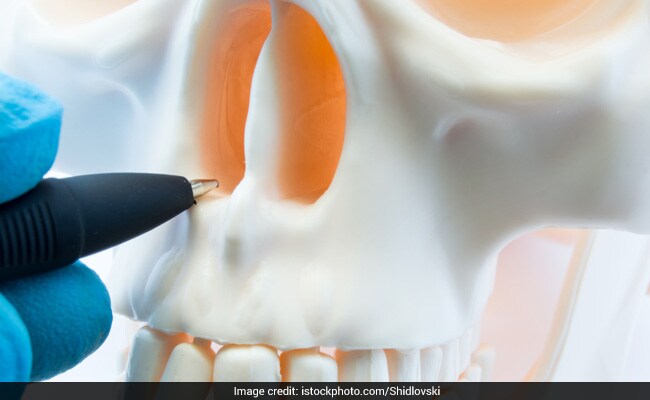Deviated septum is a structural disorder of the nose. It could either be due to an injury or can be the result of a birth defect. Here are its signs and symptoms.

Deviated septum or deviated nasal septum is a structural disorder of the nose
HIGHLIGHTS
- Deviated septum is a structural disorder of the nose
- It could be due to an injury or can be the result of a birth defect
- Lack of moisture inside the nostrils is more likely to bleed easily
When you breathe; does air flow in and out easily or does it not? If breathing normally is not that easy for you and it is giving you a hard time, it could be due to deviated septum. Deviated septum or deviated nasal septum is a structural disorder of the nose. The nasal septum is a wall of bone and cartilage which divides your nose into two cavities. This extends back to your nostrils. Ideally, the two passages of the nose should be separated by a straight wall, dividing the two nostrils equally. But in some cases (80% approx), there is a slight deviation in the pathway and one nostril ends up being bigger than the other. Usually, this does not cause much discomfort. But in some cases, septum bends severely to one side. This condition is known as deviated septum. It could either be due to an injury or can be the result of a birth defect. This condition can lead to difficulties in breathing and sleeping.
Also read: What Is The Difference Between A Cold And The Flu?
Here are 6 signs and symptoms of deviated septum. Take a look.
1. Difficulty in breathing
Due to a deviated nasal pathway, you may find it difficult to breathe normally. The crooked pathway makes it difficult for air to flow in an out easily. You may find it difficult to breathe easily through the nose. You may even feel that the symptoms are worse on one side; it could be a blocked nose or a running nose. Sometimes the discomfort could shift from one nostril to the other.
 Deviated septum: It could interfere with normal breathing
Deviated septum: It could interfere with normal breathing2. Regular nose bleeds
Impaired breathing through the nose due to the blocked pathways could lead to dry membranes. Lack of moisture inside the nostrils is more likely to bleed easily.
Also read: 6 Things You Should Not Do When You Have A Cold
3. Sinus infections and common cold symptoms
Due to the deviated septum, one of the nostrils is likely to be blocked. This can result in sinus infections and common cold symptoms. You may experience a blocked or a running nose. In most cases, it can be treated with medication but if it still doesn't come to normal, check with your doctor.
 Deviated septum: It can result in sinus infection symptoms
Deviated septum: It can result in sinus infection symptomsPhoto Credit: iStock
4. Snoring
Deviated septum can result in nasal congestion which can result in snoring or loud breathing. A disrupted nasal pathway makes it difficult for you to sleep in the first place. In some cases, it may even result in sleep apnea. Sleep apnea can be quite fatal because it is a condition where a person stops breathing when asleep.
Also read: Home Remedies To Get Rid Of Common Cold
5. Headaches
Sometimes, the deviated septum comes in contact with the structures of your nose. This can result in headaches. These walls are responsible for moisturizing the walls of the nose and allow warm air to move easily through it. If the septum comes in contact with the walls, air fails to move easily and can result in headaches.
 Deviated septum: It can result in headaches
Deviated septum: It can result in headaches6. Facial pains
People dealing with deviated septum suffer from a clogged nose. This can lead to facial pains as well. When the septum comes in contact with the walls of the nose, it disrupts the normal functioning of these walls and results in a headache. This signals a severely deviated septum which requires treatment.
Disclaimer: This content including advice provides generic information only. It is in no way a substitute for qualified medical opinion. Always consult a specialist or your own doctor for more information. NDTV does not claim responsibility for this information.
DoctorNDTV is the one stop site for all your health needs providing the most credible health information, health news and tips with expert advice on healthy living, diet plans, informative videos etc. You can get the most relevant and accurate info you need about health problems like diabetes, cancer, pregnancy, HIV and AIDS, weight loss and many other lifestyle diseases. We have a panel of over 350 experts who help us develop content by giving their valuable inputs and bringing to us the latest in the world of healthcare.












